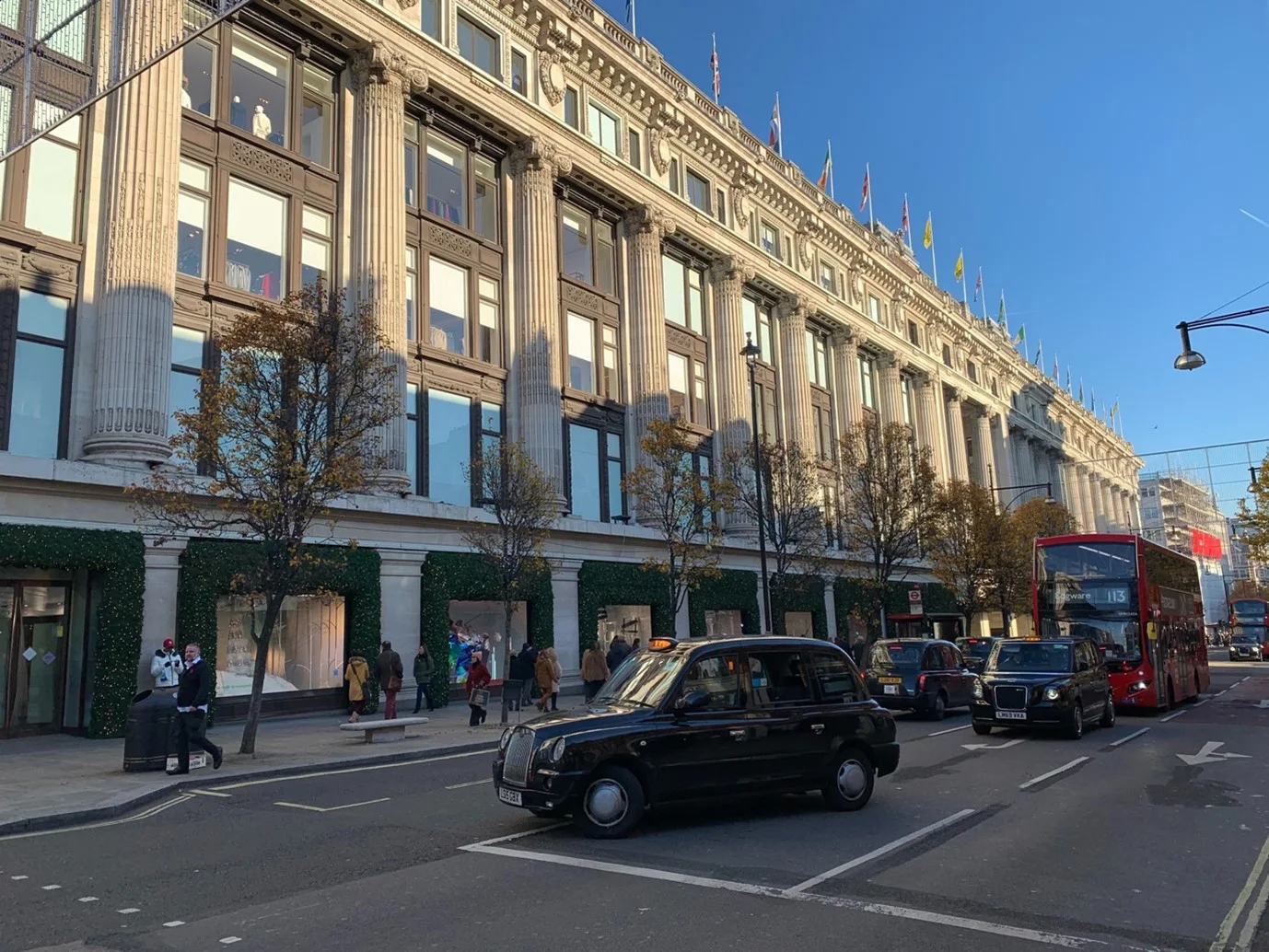Road Traffic Accidents in Leeds: When Does it Become a Crime?
Road traffic accidents happen more than 250 times a day in the UK, but when do these accidents become crimes? Discover more, here…
If you’ve been involved in a road traffic accident, there’s always a chance that a court could find you guilty of committing a crime. The offence could be as simple as careless or dangerous driving, and this is up to the court to interpret and determine.
In cases like this, you’ll need to seek the council of a Leeds defence lawyers* to make sure an accidental act of careless driving doesn’t become a criminal conviction. To avoid this sort of situation, learning more about what is classed as illegal on the road is very important.
In this post, we’re going to do our best to help you avoid road traffic accidents in the first place, and help you understand when an accident becomes a crime. This way, you know where you stand if you’ve been involved in one, and make the necessary arrangements, moving forward.
What Are the Most Common Causes of Road Traffic
Accidents?
Before we get into how to avoid road traffic accidents and when they become a crime, we’re going to briefly go over the most common causes, so you have an idea of how these accidents happen.
Driver Error
Driver errors are the most common cause of road traffic accidents in the UK and in Leeds, according to the latest figures from the Department of Transport. In order from most to least, these are some of the driver errors most noted:
• Failing to look properly
• Failing to judge another person’s path or speed
• Poor turn or manoeuvre
• Loss of control
Behaviour and Inexperience
The second most common cause of road traffic accidents in the UK are behaviour and inexperience, which includes:
• Carelessness, recklessness, or being in a hurry
• Learner or inexperienced driver
• Aggressive driving
Impairments and Distractions
Impairments and distractions are the third highest cause of road traffic accidents. In order, from the least to the most cases, these distractions include:
• Impaired by alcohol
• Distraction in vehicle
• Illness or disability
Obviously, being drunk behind the wheel is a crime and will definitely see you in court if you’re arrested.
Injudicious action
Injudicious actions are ones that are likely to land you in criminal court, so take note of these cases:
• Travelling too fast for conditions
• Following too close
• Exceeding the speed limit
• Disobeyed ‘Give Way’ or ‘Stop’ sign
Pedestrian Error
Our fifth and final set of causes for road traffic accidents are errors made by pedestrians, which include:
• Failed to look properly
• Carelessness, recklessness, or being in a hurry
• Failed to judge vehicles’ path/speed
If you’re into your statistics, and this list hasn’t satisfied you, this infographic provides a really brilliant visualisation of the above lists
How to Prevent Road Traffic Accidents
Now that we have an idea of how road traffic accidents are caused, we’re going to give you some advice on avoiding being in one.
1. Pull into Traffic Slowly
Before you pull out wildly into traffic, make sure to stop, look and listen. This could be the difference between hitting a pedestrian or someone on a bike, and not.
If you’re pulling into a busy intersection, judge the speed of the nearest approaching car properly and don’t rush into the road if you’re not certain you can get out in front of them in time.
2. Watch for Cars Running Red Lights
Some people run red lights, which is not your fault but it’s something you can look out for. If your light has turned yellow and you’re ready to go, make sure there isn’t some idiot barrelling towards a red that cuts across you because they might charge through it.
3. Keep a Hand on the Steering Wheel
This is a trope we’ve been hearing since cars were invented, but it’s one that has stuck around for a reason. If anything crazy happens, like someone pulls out without signalling and nearly hits you, or you hit a pothole, or get a blown tire, your reaction time will be heavily impeded if your hands aren’t on the wheel.
In fact, any road traffic accident you might get into will be a lot worse if you’re not holding that wheel when it happens. Try to avoid changing radio stations, looking at your cell phone, eating or doing anything that means you have to take your hands off the wheel.
4. Watch Out for Kids and Animals
The reason we have those school signs with a parent and child crossing the road, and we have signs for deer in more rural areas, is because children and animals can jump in front of your car, seemingly out of nowhere.
Kids are still in the midst of understanding the world and it takes time to develop road sense. In that same vein, animals still don’t really understand roads and will dash across whether there’s a car there or not. So, be understanding and wary of this.
5. Perform Engine Maintenance Regularly
Making sure your car is in good condition and wont stall, fail to brake, or have any other issue that might cause a road traffic accident is good practice. If you notice any issues, get them fixed as soon as possible to avoid potential catastrophe.
When do Road Traffic Accidents Become a Crime?
If you get to the stage where you’ve done your best to avoid an accident, but you’ve been involved in one any way, it’s time for you to learn where you stand legally. Here are the causes of road traffic accidents where you will or might be tried for a crime:
Dangerous Driving
Dangerous driving falls under section 2 of the Road Traffic Act 1988, and is committed when the driver’s actions fall below the standard expected of a competent and careful driver. It also has to be obvious that the way the person was driving would be dangerous. The most common examples are:
• Driving too fast
• Ignoring traffic lights
• Overtaking dangerously
• Driving under the influence
• Being distracted by something in the car (remember two hands on the wheel)
• Driving when you know the vehicle is unfit
A dangerous driving offence can lead to 2 years' imprisonment, and unlimited fine or obligatory disqualification.
Careless or Inconsiderate Driving
When a road traffic accident is considered careless or inconsiderate, it can become a criminal act. This falls under section 3 of the RTA 1988, and is similar to dangerous driving except it doesn’t have to be obvious that the driver’s actions were dangerous. The most common examples of this are:
• Overtaking on the inside
• Driving too close to another vehicle
• Driving through a red light by mistake
• Turning into the path of another vehicle
• Unnecessarily staying in the overtaking lane
• Excessively slow driving or breaking
Basically, it’s dangerous driving except there’s less emphasis on it being on purpose and more emphasis on it being a mistake. The fixed penalty for careless driving is £100 with 3 points on the driver's licence, but the most serious examples will go through court where higher penalties can be given.
Driving Under the Influence
Many road traffic accidents are caused by people who are under the influence of drugs or alcohol. If you cause one of these accidents under the influence, you’ll likely find it difficult to put the blame on anyone else even if it’s their fault and not yours.
Even if you don’t cause a road traffic accident whilst under the influence, you might still be pulled over by the police. If they then find alcohol or drugs in your system, this could result in 3 months' imprisonment, up to £2500 fine, or a possible driving ban.
Driving Offences Involving Death
These road traffic accidents actually fall under the purview of dangerous driving, inconsiderate driving, or driving under the influence. For the death to be considered the result of dangerous driving, the standard of driving has to be bad enough to have created an obvious risk of danger. The maximum sentence for this is 14 years imprisonment.
For inconsiderate or careless driving the level of blame placed on the driver can vary widely. This could be from being on the borderline of dangerous driving to misjudging the speed of another vehicle. The maximum sentence for this is 5 years imprisonment.
As we said in the under the influence heading, if you’re drugged up and you kill someone behind the wheel, the blame will likely fall solely on you. For this, you could receive the maximum 14 years imprisonment for dangerous driving.
What Should I Do Now?
Today, we’ve discussed the most common causes of road traffic accidents across Leeds and the UK, and shared some tips on how to avoid getting in them. We’ve also given you the low down on when these accidents become crimes.
If you haven’t been involved in a road traffic accident yet, and you’re reading this post to learn more about them, then follow our advice to stop you getting into one. If you’ve already been in an accident and you think it might be a crime, speak to defence solicitors in Leeds.
Thank you for reading this post, and be sure to leave your driving stories in the comments down below!





